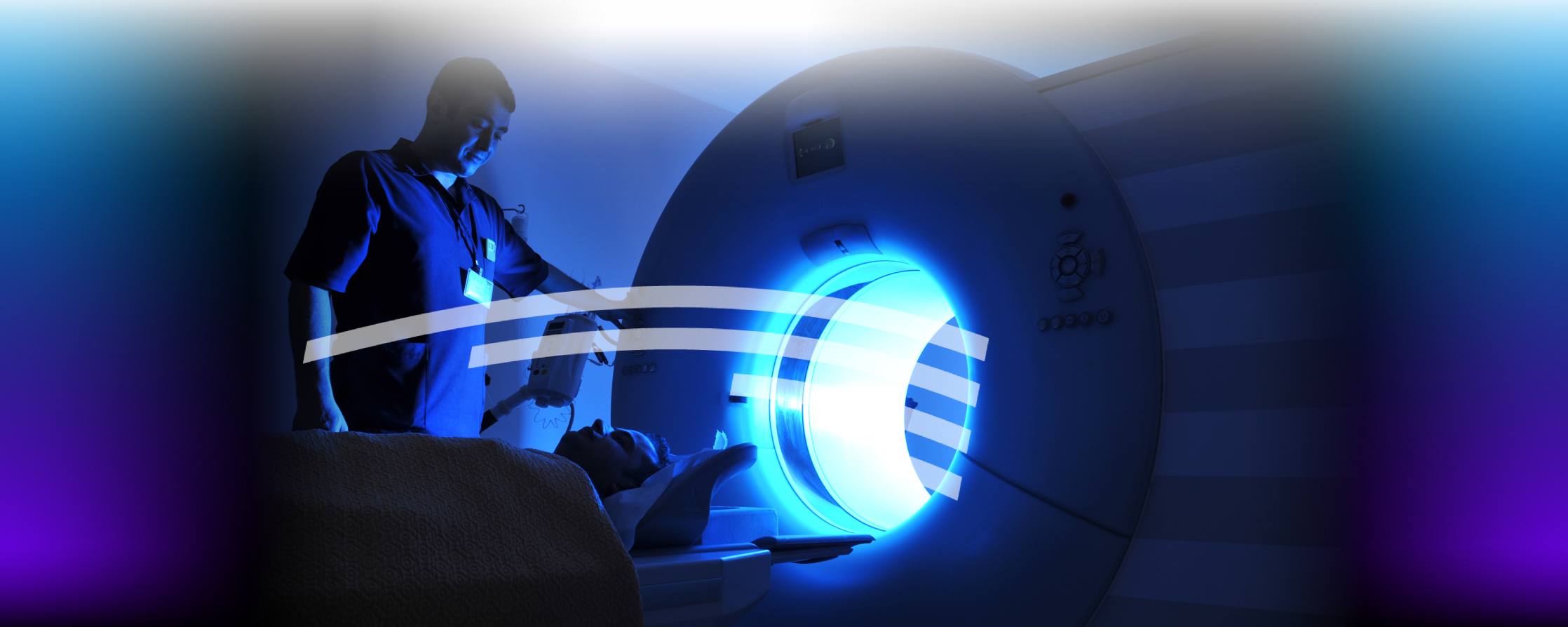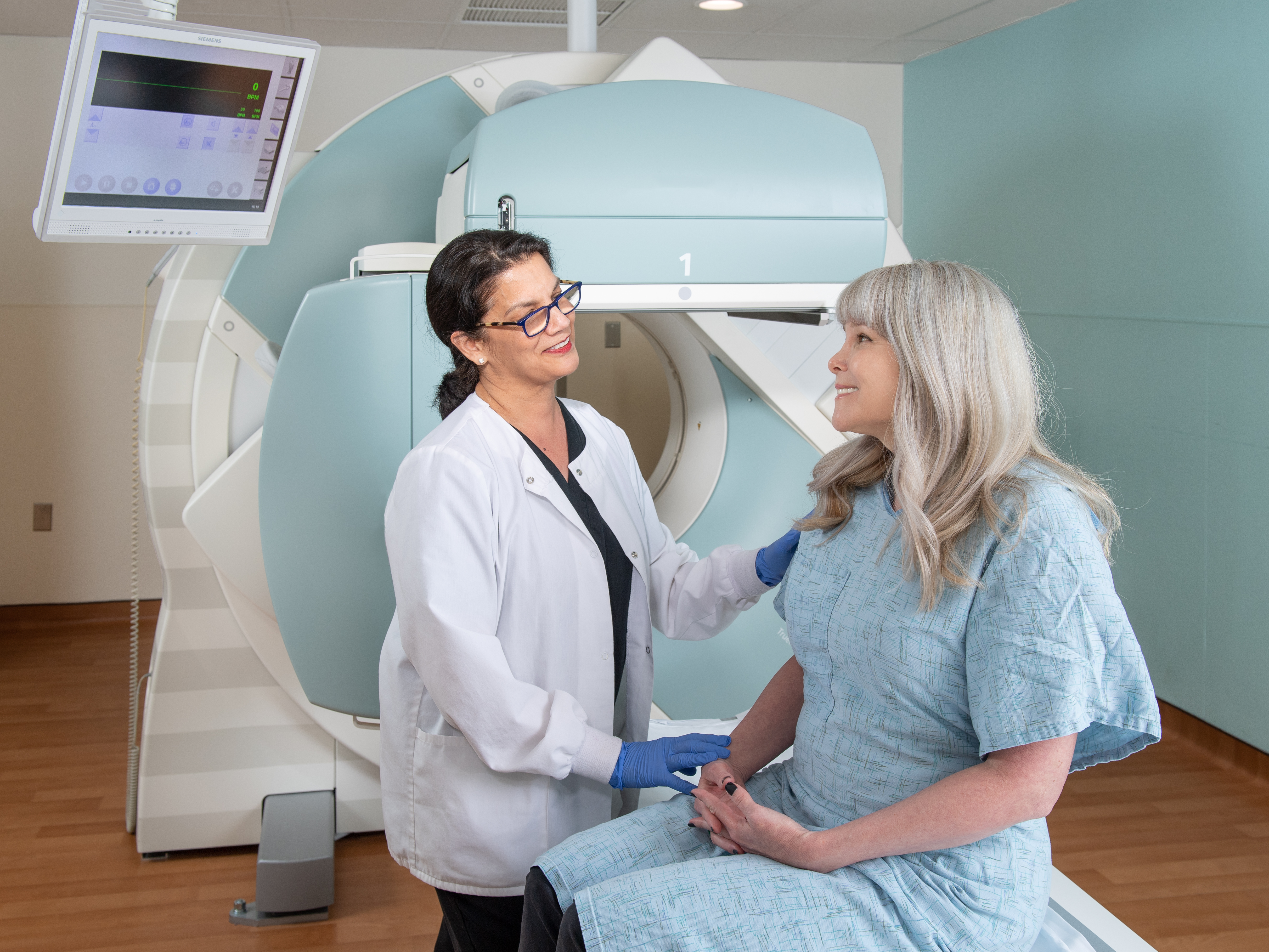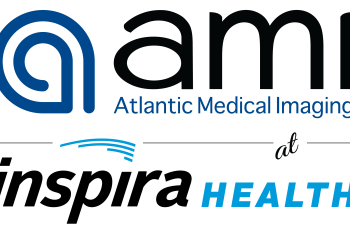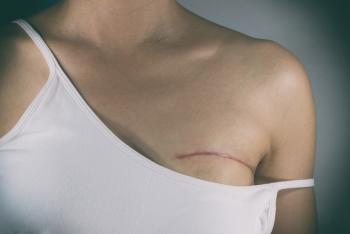Diverse participation in clinical trials can advance medical research and improve community health...
Read More
Nuclear medicine imaging can help physicians diagnose and treat a number of conditions that affect how your organs function. Our facilities, including our outpatient AMI at Inspira locations, are here to provide you with nuclear medicine imaging when you need it most, close to home in South Jersey.
While traditional X-rays and CT scans give physicians a look at the anatomy of your body, nuclear imaging allows physicians to see how your organs function in order to diagnose a variety of conditions and determine a treatment plan. It can help diagnose and treat conditions and disorders in the blood, thyroid, gallbladder, heart, lungs, bones and kidneys.
Nuclear imaging can also be used in the treatment of certain conditions and to evaluate how well treatment is working, such as in radioimmunotherapy.
During nuclear medicine imaging, you will receive a radioactive tracer, either injected into a vein or taken orally. Once the substance reaches the organ being examined, the radionuclide emits high-energy gamma particles. As these particles exit your body, they are detected by a gamma camera, and the energy is analyzed by a computer—this is what produces the images that physicians use to evaluate your health conditions.

Prior to your nuclear medicine test, your care team will go over any specific requirements you will have for the day of the test. You will be given a radioactive tracer intravenously, by mouth or through an inhaled substance. Once the tracer is in your system, you will lie down on a table under a gamma camera that will detect radiation coming from your body.
Nuclear imaging tests usually last for about 30 minutes to an hour. When you visit AMI at Inspira outpatient locations, you can go home and resume your normal activities immediately.
No. Generally, radiation levels passed to the patient are similar to those from standard X-rays. There are no side effects from the radioactive tracer and it’s not harmful to the body. There is a very small chance that you might be allergic to the tracer, but this is rare.
Nuclear imaging can show things that other types of imaging can’t, like how the organs are functioning instead of just what they look like.
Our state-of-the-art imaging technology and specialty trained, board certified radiologists can be found at all nine locations throughout South Jersey.

Diverse participation in clinical trials can advance medical research and improve community health...
Read More
Atlantic Medical Imaging (AMI), Inspira Health and Regional Diagnostic Imaging (RDI) are proud to...
Read More
If you have had lymph node surgery, especially as a treatment for breast cancer, you may be at risk...
Read More
The material set forth in this site in no way seeks to diagnose or treat illness or to serve as a substitute for professional medical care. Please speak with your health care provider if you have a health concern or if you are considering adopting any exercise program or dietary guidelines. For permission to reprint any portion of this website or to be removed from a notification list, please contact us at (856) 537-6772